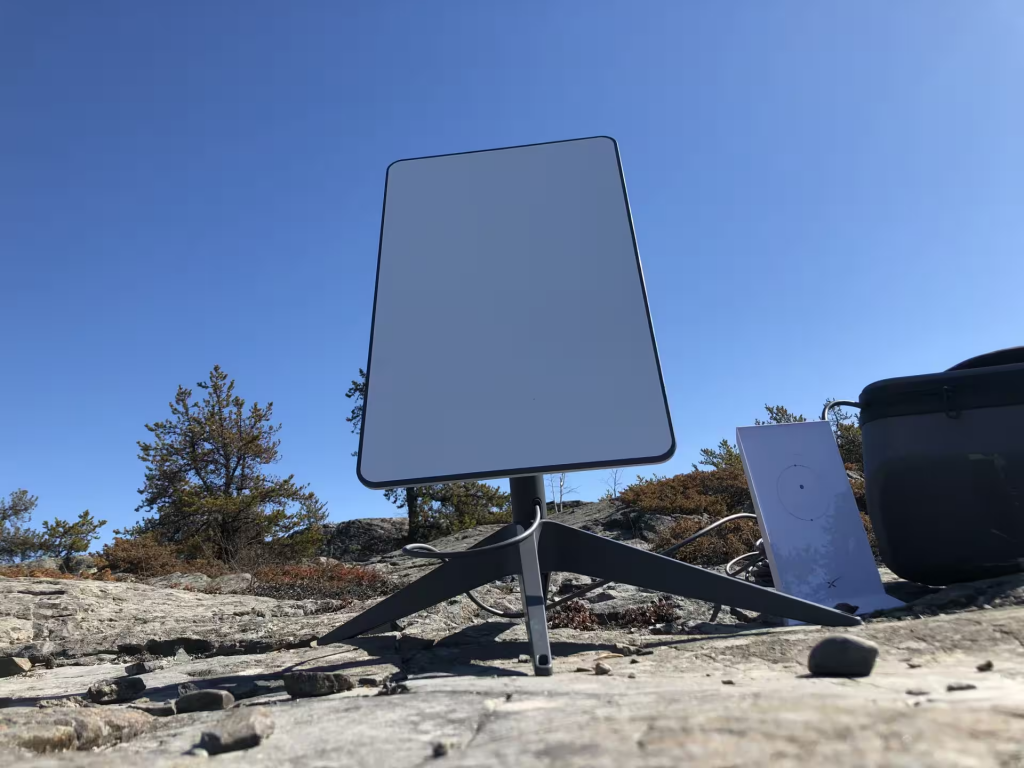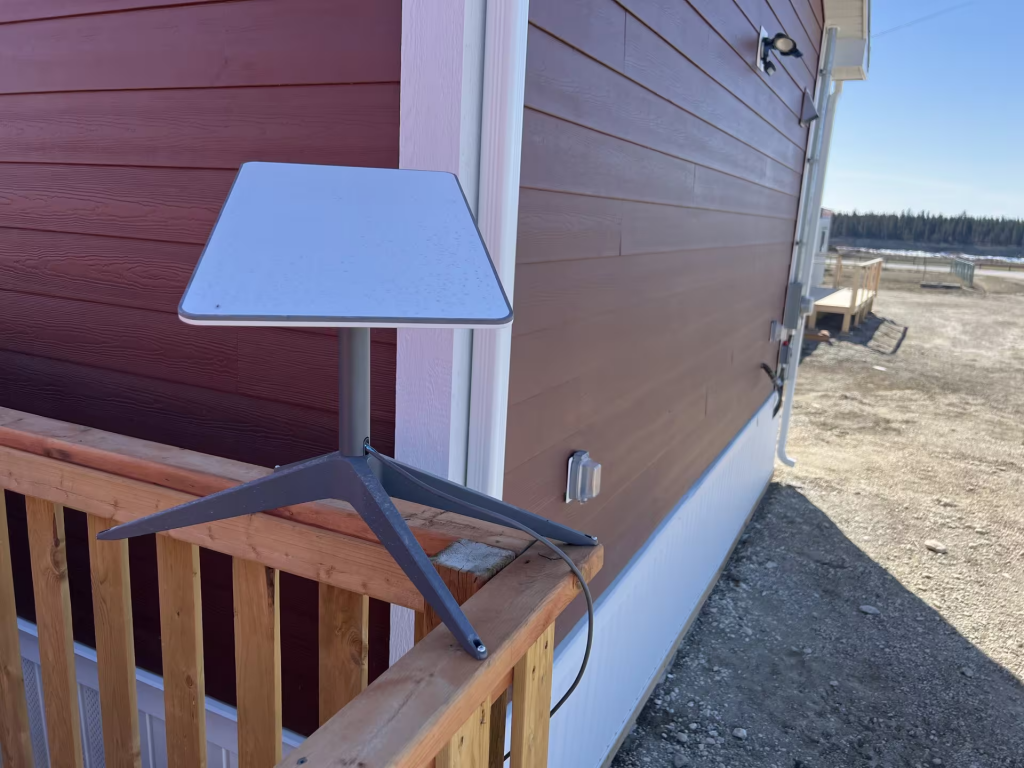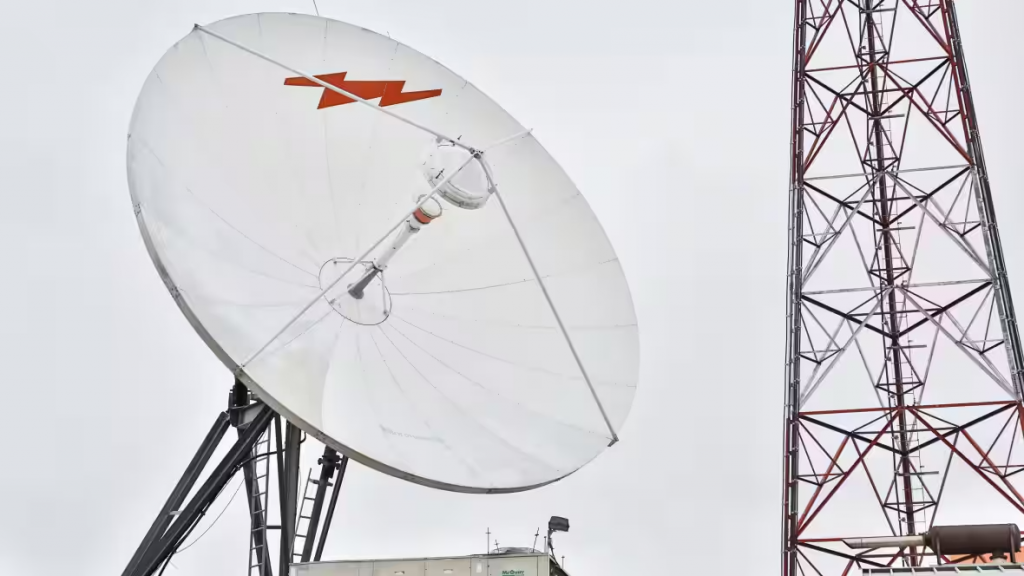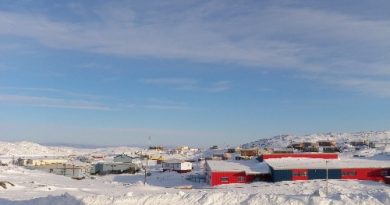Why starlink is being called a ‘game-changer- in many N.W.T. communities

When Andrea Keogak was asked how many people in her community of Sachs Harbour, N.W.T., use Starlink, she guessed it was likely “everybody” in the hamlet.
An employee of the band office in Gamètì, N.W.T., said the same. That includes the community’s health centre and the school.
From the northernmost regions of the N.W.T. to the furthest south, more and more residents seem to be opting for SpaceX’s satellite technology — shaking up Northwestel’s near-monopoly on internet service across much of the North.
Northwestel’s website touts itself as a telecommunications company “in and of Canada’s North,” with over 500 workers in and from northern communities. The company also makes regular financial contributions to northern organizations and causes.
But some former Northwestel customers in remote communities associate the company with limited data plans and exorbitant overage charges — things they had little choice but to accept, if they wanted internet. That changed when Starlink came on the scene.
In Ulukhaktok last year, a local non-profit’s pilot project aimed to offer Starlink internet around town through SIM cards. But there was little interest, because the majority of the town already owned a Starlink.
In Fort Providence, the new daycare is using it; in Fort Smith, the Northern Store is selling Starlink equipment; and in the small community of Enterprise, hamlet councillor and former mayor Michael St. Amour says there are about a dozen kits in the community in case of another wildfire evacuation amid a telecommunications outage.
That happened last summer when fires damaged Northwestel’s fibre optic line. Two households in Enterprise had Starlink at the time and the community relied on those connections to coordinate the local evacuation.
“Starlink saved our asses,” St. Amour said.

It’s unclear how many customers have left Northwestel since Starlink became available. CBC News asked Northwestel, but was told exact customer counts weren’t available. SpaceX, which owns Starlink, didn’t respond to an interview request.
But during Canadian Radio-television and Telecommunications Commission hearings in Whitehorse last year, Northwestel representatives told the commission that Starlink was already eating into its customer base.
Northwestel has been building and expanding fibre optic lines — something the N.W.T. and federal governments have invested in and continue to invest in — but the company also uses satellite technology in some more remote communities. It recently announced it was upgrading that technology.
Meanwhile, many Starlink customers in the North say they prefer the flexibility offered by that company’s low-orbit satellite service, compared to fibre optic internet. A Starlink dish just needs to face the sky to connect to satellites for Wi-Fi. Many northerners use Starlink at their cabin, out on the land, or even on their vehicle on road trips.
‘Like the Edmonton Oilers … everybody is a fan’
The N.W.T. government is proceeding with an infrastructure project connecting Tuktoyaktuk, an N.W.T. community on the Arctic ocean, to the Mackenzie Valley Fibre Link in Inuvik. It’s expected to be completed this fall.
The project will be integrated with the Canada North Fibre Loop, a new line being constructed by the Yukon Government, from Dawson City, Yukon, to Inuvik, to prevent outages by providing redundancy to the northern fibre network.
In July 2023, the federal government announced it was investing $14,803,500 in the Mackenzie Valley Fibre Link project, while the N.W.T. would provide $4,934,500.
“This new infrastructure will provide higher resiliency and reliability for commercial broadband traffic that Low Earth Orbiting satellite technology (like Starlink) cannot provide,” wrote Todd Sasaki, a spokesperson for the N.W.T. government, in an email.
But in Tuktoyaktuk, many residents are no longer interested in connecting to that fibre optic network.
Tyrone Raddi lives in Tuktoyaktuk and says he switched to Starlink “a week after it came out.” He said he’s not the only one in town.
“It’s just like the Edmonton Oilers, everyone has one, everybody is a fan of them, for sure,” he told CBC News.
Raddi says he has one Starlink kit for his home and another he brings “everywhere he goes,” which is often out on the land for traditional activities and his work in search and rescue. He says it offers him real-time information on things like the weather, while also providing the ability to contact people.
“I have contact with home if anything goes sideways,” he said.

Kyle Weese of Cambridge Bay, Nunavut, has had Starlink for over a year and a half.
“I have kids over in a different community, so we FaceTime, like, three times a day. You can’t beat the no glitching, no freezing,” he said.
On Northwestel’s website, it advertises a 300-gigabyte plan for $109 a month in Cambridge Bay, and $4 for every additional gigabyte used. FaceTime, along with other uses like streaming and gaming, would quickly top that limit for Weese’s household.
Meanwhile, Starlink’s website advertises $140 a month for unlimited internet in the home, or $170 for a mobile unit, plus the cost of the hardware, which can be $600.
For Weese though, it was an easy choice.
“You don’t run out of [gigabytes], and you can’t beat the price for the monthly bill,” he said of Starlink.
Like Raddi, Weese said he also likes to bring it when he’s out on the land hunting and fishing — for safety.
“It makes sense to bring it along, for safety, or if the kids are bored.”
He also said there’s Starlink on “pretty much every street now” in Cambridge Bay.
Still the top choice, Northwestel says
Catherine Newsome, a director of marketing and communications for Northwestel, says Northwestel offers the fastest internet in the N.W.T. and she still thinks the company is the most popular option. She says that’s for various reasons, but partially because — unlike Starlink — the company is based in the North.
“We’re, you know, backed by 500 Northerners who live, work and play here in the North and dozens of communities,” she said.
“There’s still a lot of folks in those communities who value having a local technician who comes and hooks up their service, a phone line, all sorts of things like that.”

She also touted the technology that Northwestel has.
“We have a fibre-powered network. We’ve been rolling out fibre left, right and centre, and we’re now offering, you know, 500-megabyte-per-second download speeds, unlimited monthly data. It’s the fastest home Internet you can get in the North, and it’s built for modern broadband,” she said.
“It’s really a superior technology type, the same type of technology that powers downtown Calgary.”
As for the lost customers that CBC News spoke with, Newsome said Northwestel is partnering with Telesat to offer faster speeds for satellite communities using Low Earth Orbit satellites.
Newsome said Northwestel isn’t concerned about competition from Starlink, or any others slated to enter the market, including Amazon’s Project Kuiper.

“Competition drives innovation no matter what industry, and the telecom industry is no different. And whenever a new market entrant comes, it’s an opportunity for an organization to reflect on what value they bring their customers,” she said.
“We certainly have done that exercise over the years and we come out of it really confident with what we have to offer.”
Newsome said Northwestel also invests in the North, for example, by providing $650,000 a year to local organizations in the N.W.T.
‘Changed the whole landscape’
Starlink and Northwestel aren’t the only internet providers in the N.W.T.
Tom Zubko owns New North Networks, which offers internet and cable in Inuvik. He’s not overly worried about competition from Starlink.
“I think overall that’s a great thing,” he said of Starlink. “From [a] running-a-company point of view and looking for revenue and what have you, that hurts a little bit. But that’s what happens in this business.”
Last summer, when a wildfire damaged the Mackenzie Valley fibre line, knocking out internet service for weeks in the Beaufort Delta region, Zubko actually ended up using multiple Starlink dishes to offer internet to his customers.
He said he keeps that system in place in case of more outages in the summer months.
“Of course we wanted to continue to serve our customers,” Zubko said.
“In that way, it was a real huge benefit to our company … of course, it also stimulated people to look at Starlink themselves.”

Zubko says Starlink is becoming more popular in Inuvik, but many in town still rely on his business, or Northwestel. He says that’s largely because the town is connected to the fibre optic network and has technicians there to help with issues. He said the upcoming Canada North Fibre Loop will make that situation even better.
But Zubko also believes that Starlink’s popularity in other N.W.T. communities is likely eating into Northwestel’s customer base there.
“It’s definitely a game-changer. It’s changed the whole landscape for services in small communities anywhere in the North — and a whole lot of other parts of Canada, for that matter,” Zubko said.
“People are no longer hostage to the tiny bits of service they’ve been able to get until now.”
Related stories from around the North :
Canada: Non-profit offers free Starlink internet to Ulukhaktok; residents say they’re good, CBC News
Norway: New satellites to boost communications in Arctic Norway, The Independent Barents Observer
Russia: Russian military to get fast, secure internet through trans-Arctic cable, The Independent Barents Observer
United States: $30.3 million grant announced to build up high-speed internet in rural Alaska, Eye on the Arctic



